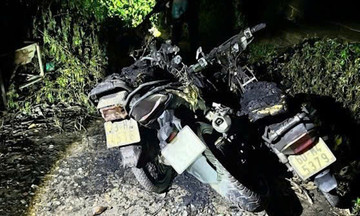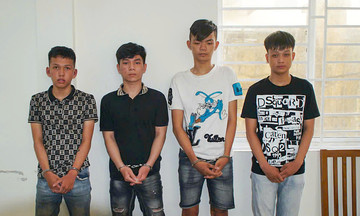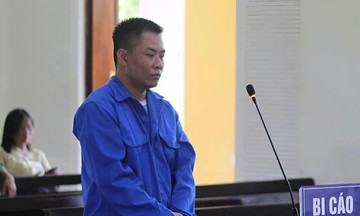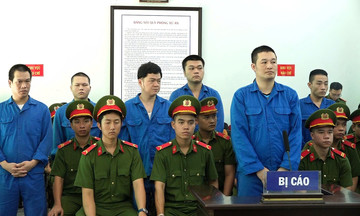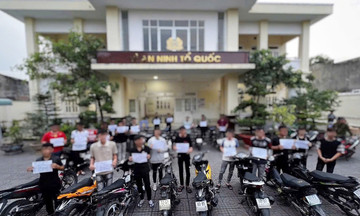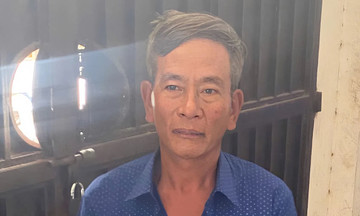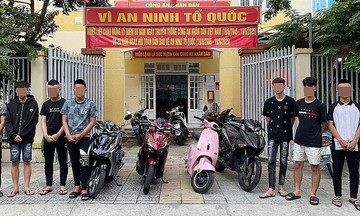This information is outlined in the draft amendment to the Law on Drug Prevention and Control, recently submitted to the government by the Ministry of Public Security. This marks a change from current regulations, which only require users to disclose information about their drug use.
The draft also proposes that drug users be placed under the additional management of commune-level police, in addition to the existing oversight by commune-level People's Committees.
The Ministry of Public Security explained that this change aims to trace the source of drugs from users to aid in combating drug-related crime. It also designates the police, border guards, coast guard, and customs officials as authorities who should receive complete and accurate information about the source of the drugs and the illegal drug use.
Regarding the management of illegal drug users, the draft adds management measures for individuals without stable residences who "have used drugs but are not yet addicted."
The draft also includes additional provisions for managing illegal drug users, such as residency management, summoning, and preventing disorderly conduct. This aims to address the issue of addicts failing to report after completing rehabilitation, leaving their localities, and hindering post-rehabilitation management.
According to the Ministry of Public Security, this management approach not only prevents disorderly conduct but also has a preventative effect. As these provisions relate to citizens' rights, they must be stipulated in the Law.
Furthermore, the Ministry of Public Security proposes to define the responsibilities of commune-level police in managing voluntary drug rehabilitation at home and in the community. Individuals undergoing voluntary rehabilitation at home or in the community must register with the commune-level police.
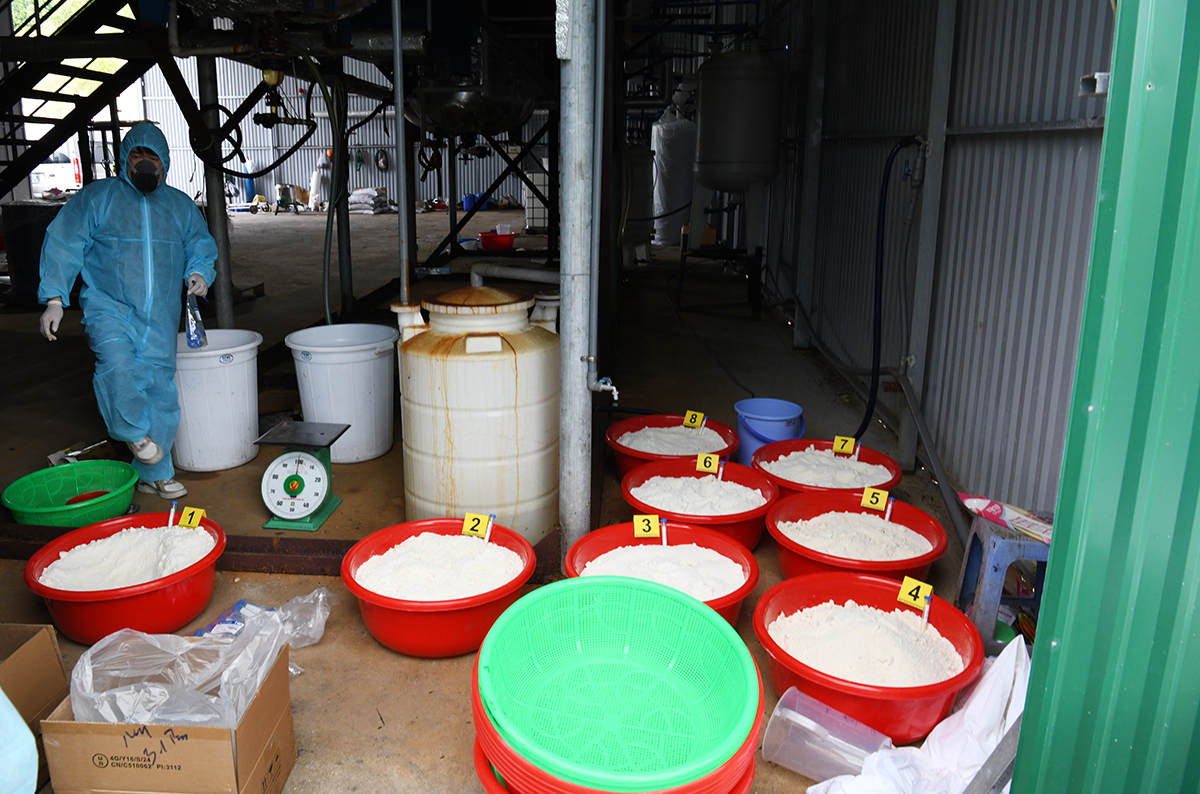 |
A large drug manufacturing facility discovered in Khanh Hoa. Photo: *Huy Ha* |
Amending the law to align with the Party's guidelines and the State's policies
According to the Ministry of Public Security, the law revision aims to institutionalize the guidelines and policies of the Party and the State on organizational restructuring, streamlining the apparatus, judicial reform, and administrative reform, while adhering to the 2013 Constitution. The revised law will complete the legal framework for controlling legal drug-related activities, managing illegal drug users, and providing rehabilitation services. This ensures alignment with the new organizational structure and addresses practical difficulties encountered in recent years.
In the draft, the Ministry of Public Security proposes that individuals without stable residences who are identified as "drug addicts" must register with commune-level police for voluntary rehabilitation. Those over 18 will be sent to public rehabilitation centers, while those aged 12 to 17 will be sent to reformatories.
Currently, Vietnam has over 413,000 individuals who use or are suspected of using illegal drugs, drug addicts, and those under post-rehabilitation management. This constitutes a significant "demand source" for drugs, putting pressure on drug control efforts. As of 30/6, nearly 292,000 people are under legal management for drug-related issues (over 55,000 illegal drug users, 107,000 addicts, over 30,000 under post-rehabilitation management, and nearly 99,000 inmates who used or were addicted to drugs before committing crimes).
The Drug Crime Investigation Police Department (C04, Ministry of Public Security) reports that drug addiction is increasingly affecting younger people, with those under 30 accounting for nearly 40%, and many children as young as 13-15 becoming addicted. The lack of monitoring and management of drug users and addicts outside of institutions has led to numerous criminal offenses, notably cases involving individuals experiencing drug-induced psychosis, loss of behavioral control, and committing serious crimes.
Previously, illegal drug use was considered a criminal offense under Article 199 of the 1999 Penal Code. Individuals who used illegal drugs in any form, despite repeated education and administrative sanctions including mandatory treatment, faced 3 months to 2 years in prison. Repeat offenders faced 2-5 years.
This offense was decriminalized in 2010. After 15 years, the amended 2025 Penal Code, effective from 1/7, has reinstated criminal penalties for illegal drug use due to the increasing complexity of drug addiction.
Specifically, Article 256a of the Penal Code stipulates that individuals currently undergoing or having undergone voluntary or compulsory drug rehabilitation, or treatment for drug addiction with substitute drugs, who are found to be using illegal drugs in any form, will be subject to 2-3 years imprisonment. Repeat offenders face 3-5 years.




